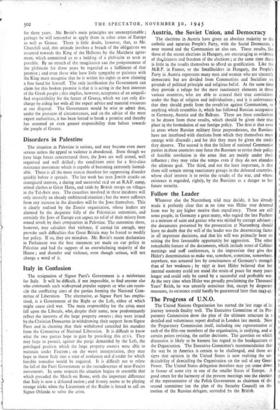Follow the Leader
Whatever else the Nuremberg trial may decide, it has already made it perfectly clear that at no time was Hitler ever deterred from war by any higher motive than expediency. There are still some people, in Germany a great many, who regard the late Fuehrer as a mixture of saint and genius who was misled by corrupt advisers ; the documents presented by the prosecution at Nuremberg should leave no doubt that the will of the leader was the determining factor in all important decisions, and that his will was primarily bent on seizing the first favourable opportunity for aggression. The other remarkable feature of the documents, which include notes of Cabinet meetings and staff conferences, is the impression they give that Hitler's determination to make war, somehow, sometime, somewhere, anywhere, was actuated less by conciousness of Germany's strength than of her weakness ; by i937 at least Hitler believed that her internal economy could not stand the strain of peace for many years longer and could only be cured by a successful and profitable war. At the very time when Hitler was proudly proclaiming the Thousand Years' Reich, he was uneasily conscious that, except by desperate measures, its existence could hardly be guaranteed later than 1943-45.






























 Previous page
Previous page